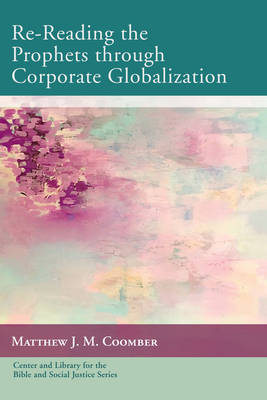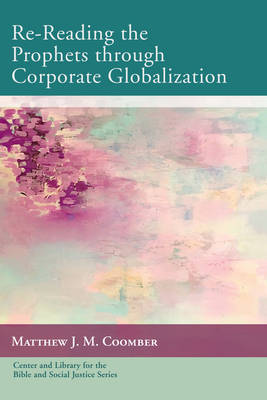
Je cadeautjes zeker op tijd in huis hebben voor de feestdagen? Kom langs in onze winkels en vind het perfecte geschenk!
- Afhalen na 1 uur in een winkel met voorraad
- Gratis thuislevering in België vanaf € 30
- Ruim aanbod met 7 miljoen producten
Je cadeautjes zeker op tijd in huis hebben voor de feestdagen? Kom langs in onze winkels en vind het perfecte geschenk!
- Afhalen na 1 uur in een winkel met voorraad
- Gratis thuislevering in België vanaf € 30
- Ruim aanbod met 7 miljoen producten
Zoeken
Omschrijving
Judah faced radical and rapid societal change as it was absorbed by the Assyrian Empire in the eighth century BCE. But while Judean prophets displayed outrage for the injustices these changes caused, their texts are often devoid of socio-economic context. Identities of perpetrators, victims, and even the nature of their actions are often absent. This book sheds light on those contexts by employing a recurring pattern found around the world and across time as subsistence communities are absorbed into complex economic systems. In addition to outlining this pattern's presence in Judah's archaeological record, Coomber turns the lens in the other direction to gain new insights from a recent example of this pattern's unfolding: Tunisia's absorption into international capitalism. The result is an interpretive tool that asks new questions of ancient prophetic texts, while also revealing threads through which the prophets find voice in addressing a radically different circumstance with similar consequences pertaining to land use, the weaponization of debt, and exploitation of labor.
Specificaties
Betrokkenen
- Auteur(s):
- Uitgeverij:
Inhoud
- Aantal bladzijden:
- 362
- Taal:
- Engels
- Reeks:
Eigenschappen
- Productcode (EAN):
- 9781666700756
- Verschijningsdatum:
- 29/07/2022
- Uitvoering:
- Paperback
- Formaat:
- Trade paperback (VS)
- Afmetingen:
- 152 mm x 229 mm
- Gewicht:
- 530 g

Alleen bij Standaard Boekhandel
+ 122 punten op je klantenkaart van Standaard Boekhandel
Beoordelingen
We publiceren alleen reviews die voldoen aan de voorwaarden voor reviews. Bekijk onze voorwaarden voor reviews.









